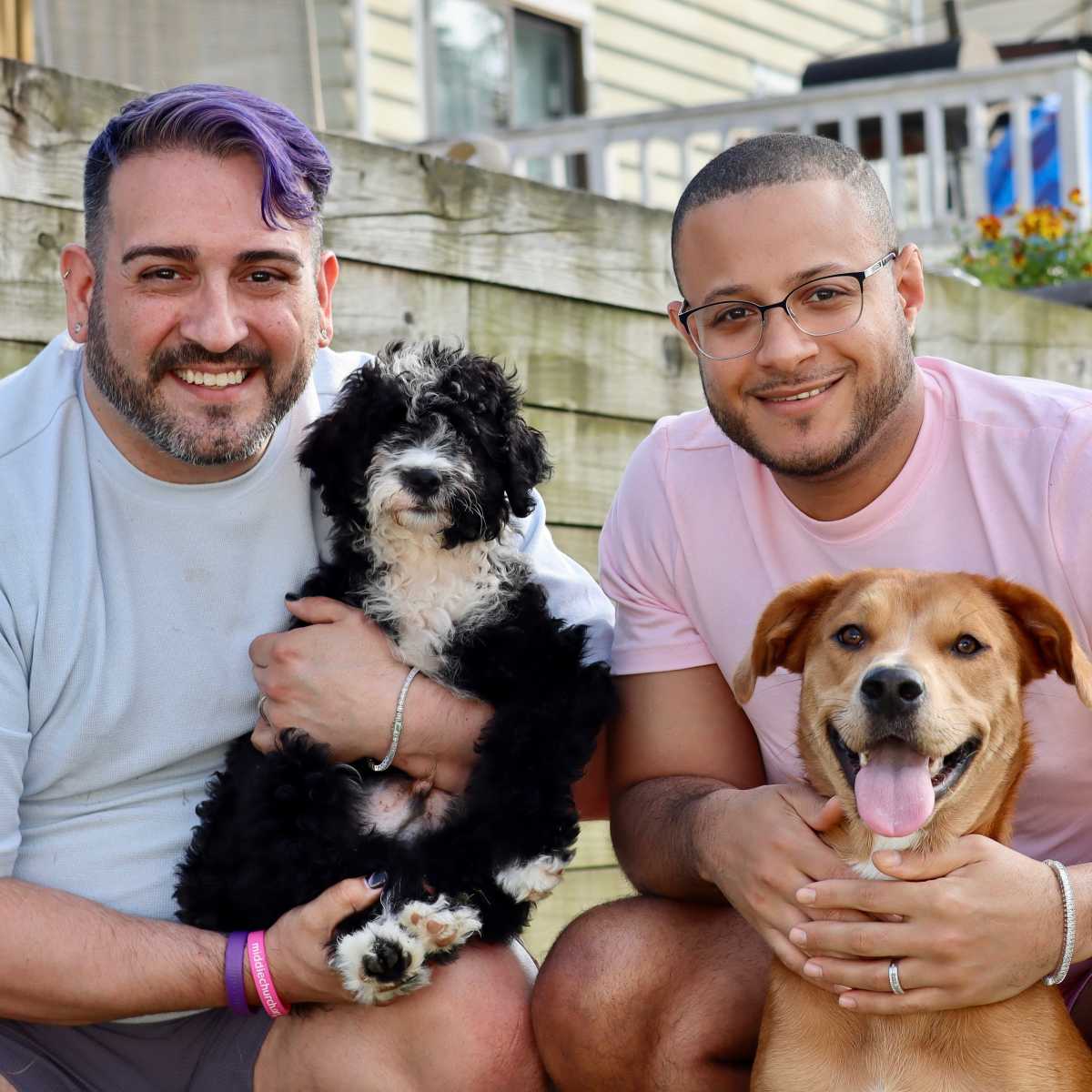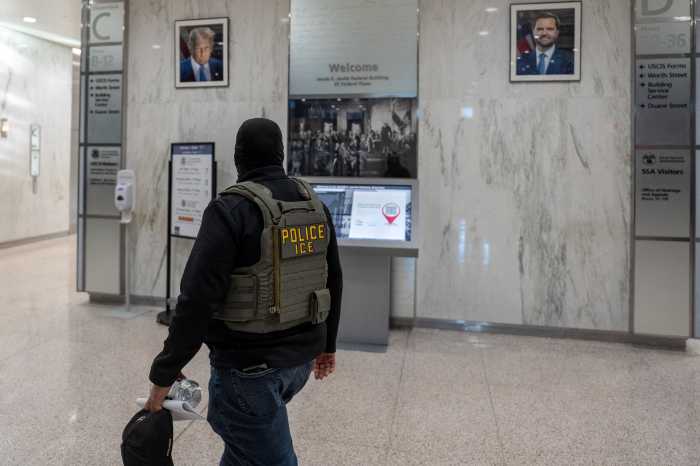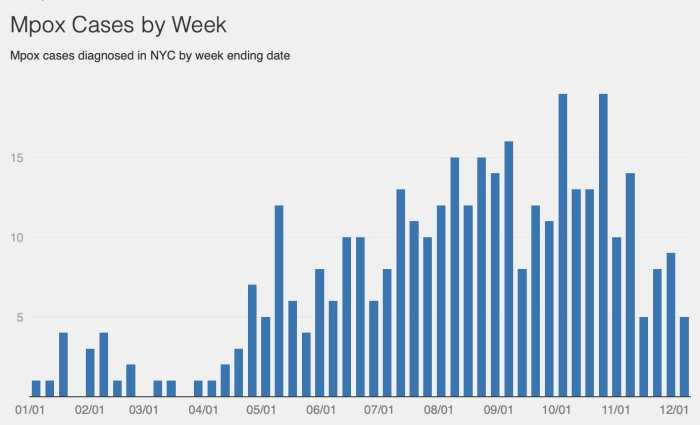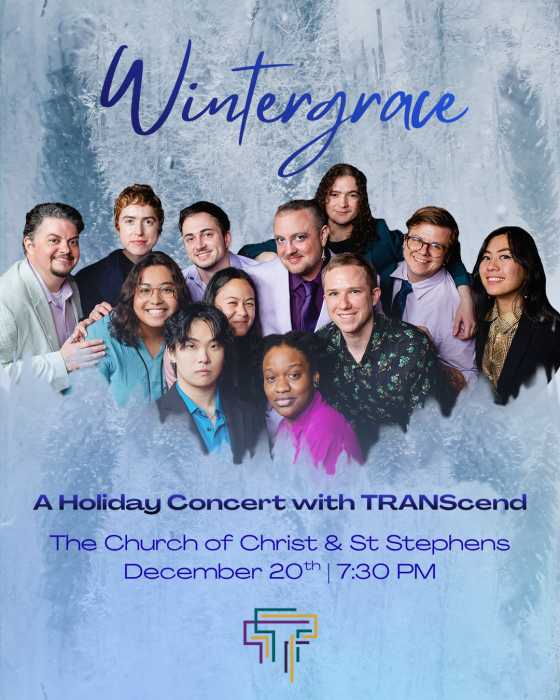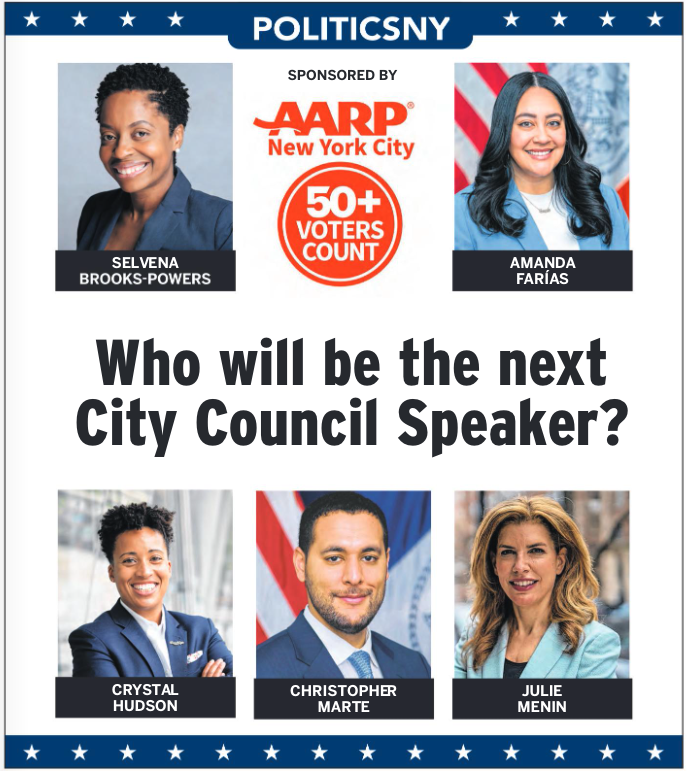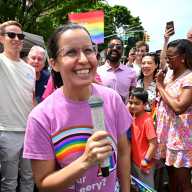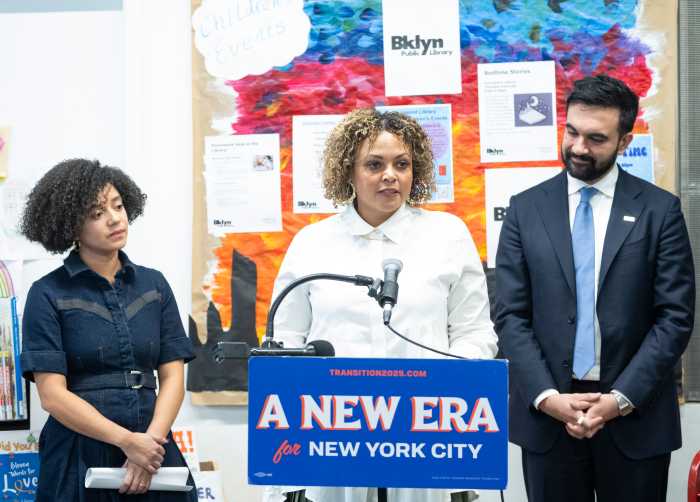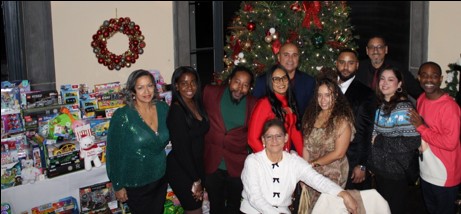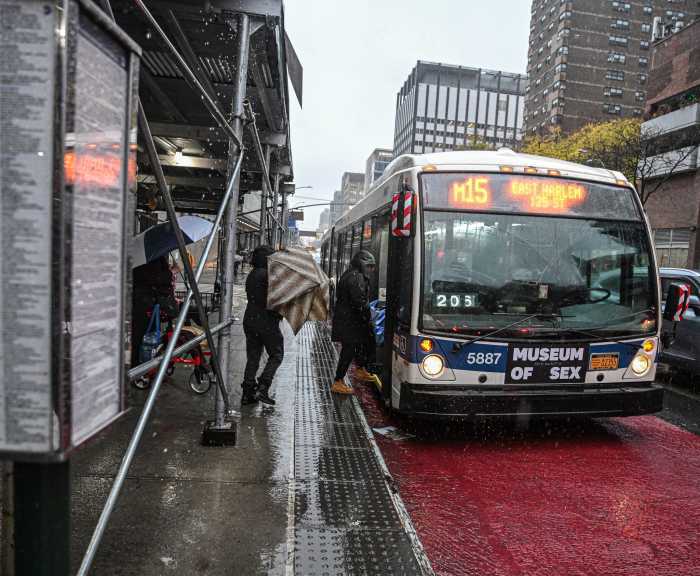The fight against bullying in New York’s public schools has a long way to go before all of them are safe places for all kinds of students, but it was marked by an infusion of activity March 8-12 with a Respect for All Week pushed by out lesbian City Council Speaker Christine C. Quinn, a Chelsea Democrat.
It has been an uphill fight for Quinn. In 2004, Mayor Michael R. Bloomberg, then a Republican, now an Independent, refused to implement the Council’s Dignity in All Schools Act, passed over his veto. But a “Respect for All” program was piloted in 2007 and expanded in subsequent years on the basis of a new Chancellor’s Regulation against bias-based harassment in 2008, after lobbying led by the citywide Dignity in Action Coalition, and especially the Sikh Coalition. The Sikh organization was joined by many of its fellow advocates last June in criticizing the program’s implementation during its first year.
Still, many from the Dignity Coalition gathered for the kick-off of last week’s events, though some remain critical, including Pauline Park of the New York Association for Gender Rights Advocacy (NYAGRA), who acknowledged that “there is greater visibility for the program and the visibility of LGBT issues in it,” but said the events last week still amounted to “a publicity stunt, designed to cover up a lack of commitment [by the schools] to do something real about the pervasive bullying and bias-based harassment.”
Despite requirements that every student receive a brochure about the program and that posters be displayed in every school telling kids how to report incidents, a total of 6,207 complaints were logged in a system of more than 1.1 million students in the 2008-9 school year. While Chancellor Joel Klein called this as “a baseline” on an appearance with Quinn on NY-1’s “Inside City Hall” promoting Respect for All Week — clearly suggesting the number represents a realistic data point for judging the program’s future progress — it may speak more to students’ lack of knowledge about the complaint procedure and their discomfort with making reports.
Students can complain to school authorities or make online reports at RespectforAll@schools.nyc.gov.
Quinn got Klein on board for this special week, he said, over drinks at a wedding. She involved more than half of her Council members, including the two new gay men on the Council, Daniel Dromm, a Jackson Heights Democrat, and Jimmy Van Bramer, a Sunnyside Gardens Democrat, who flanked Quinn and Klein at the March 8 kick-off to the week at Sunset Park’s PS 24 in Brooklyn — called the Dual Language School for International Studies and regarded as a model school when it comes to embracing diversity.
“Schools unfortunately can be places where hate plays out and bullying can occur,” Quinn said at the press conference. “I spoke to the chancellor and said we need to do more to send a message to parents, teachers, and students that these crimes are unacceptable. I said we should do something system-wide to send a message how important it is. And he said yes.”
“I would have agreed to it sober,” Klein joked, referring to their discussion of it at the wedding. For the anti-bullying efforts to work, he said, “everyone has to be deputized. We have to make this part of our daily existence” in the schools.
Letters promoting the Respect for All anti-bullying program were ordered to be given to all students to take home to their parents and to all teachers last week reminding them of the 2008 Chancellor’s Regulation A-832 on bias-based harassment. That regulation explicitly includes sexual orientation and gender identity and expression as among the categories for which harassment is forbidden.
“It’s a good start,” said Dromm, who came out as a fourth grade teacher in the early 1990s when the leader of his conservative local school board in Queens led a fight against the gay-inclusive Children of the Rainbow second grade teacher guide. That program and the outcry it sparked drew national attention and led to the curriculum being scrapped.
“When teachers see a letter from the chancellor, it frees them up to do what they know how to do best,” Dromm said. “Sometimes, teachers fear implementing these lessons” that promote an understanding of differences, especially regarding sexuality, “because they feel that they might not have the support of principals if parents object.”
Quinn and Van Bramer went to his and Klein’s alma mater, Bryant High School in Long Island City, on March 11, where skits on coming out were performed by the school’s Gay Straight Alliance for an assembly of 15 classes. They were nervous about how the students would respond when a senior from the GSA named George came out dressed as Lady Gaga to banish anti-gay language being dished out by the other actors.
“But it was just amazing,” said Van Bramer, who said he was closeted in high school. “They burst into applause.”
Van Bramer then got to speak about being openly gay and, again, “they applauded.” George spoke about being able to find his voice in the GSA and to then enjoy high school like other students.
“It was deeply moving,” Van Bramer said. “We were practically in tears.”
Out lesbian Councilwoman Rosie Mendez went to East Side Community High School on 12th Street near First Avenue as part of the week to see a presentation by Rick Mueller of Pride Not Prejudice that also dealt with interactions between gay and non-gay students.
“It was very real and the kids got it,” she said. “They were engaged and visibly moved, and it brought me to tears, too.”
“We need to put more resources into these trainings,” Mendez said, promising to step up to the plate by directing some of the community funds she controls to expanding it to other schools.
NYAGRA’s Park said that the week “didn’t actually require any principal or any school to do anything, much less anything that is LGBT-specific.”
Quinn said that among the schools she visited as part of the week, “all four had very different programming,” depending on the issues the school was dealing with. “I saw signs up about it everywhere in the schools, and got great feedback from my Council colleagues who participated.”
At Sunset Park’s PS 24, where the Morningside Center for Teaching Social Responsibility works to establish a culture of respect, a small group of fifth graders worked on a word association about “men,” and among the things they came up with was “some are gay.”
According to Quinn, the Department of Education (DOE) is surveying principals about how the week worked. She said she wanted to know: “How many participated? What did they do? Was it successful? If they did not participate, why? How do you integrate this into your school?” She added that some principals tell her “we do it all the time.”
Amardeep Singh, director of programs at the Sikh Coalition, wrote in an email that the DOE has to provide incentives to schools that report incidents.
“As it stands, schools that ‘do the right thing’ by reporting bias-based harassment to the DOE could have the stigma of being a problem school attached to them, while schools that under-report do not. One solution could be to provide grant or other technical assistance to schools that report problems. In other words, if you have a problem, the DOE will be there to help you, not punish you.”
While all principals are required to submit plans on how they will implement the program, it will be years before all staff are trained and before most schools enjoy cultures like that at PS 24. Connie Cuttle, director of professional development for the DOE, which has trained 3,000 teachers in the program, said, “We’re turning around an ocean liner.”
No account of DOE’s anti-bullying efforts can omit mention of the Harvey Milk High School at the Hetrick-Martin Institute that exists because many LGBT students are unsafe in mainstream schools.
A new survey from the US Department of Justice, however, found that nationwide the percentage of children who said they were physically bullied fell from 22 percent in 2003 to less than 15 percent in 2008, the New York Times reported. Experts say that the investment in anti-bullying programs after the 1999 Columbine High School massacre in Colorado helped.
Significantly, the survey did not ask about bullying based on sexual orientation or gender identity, and the Gay, Lesbian and Straight Education Network said those incidents have not declined in recent years.
Quinn was moved by the students at Long Island City’s Bryant High School applauding a gay skit.
“It doesn’t mean that there’s no more homophobia, but it does mean we’ve moved tremendously forward,” she said.

